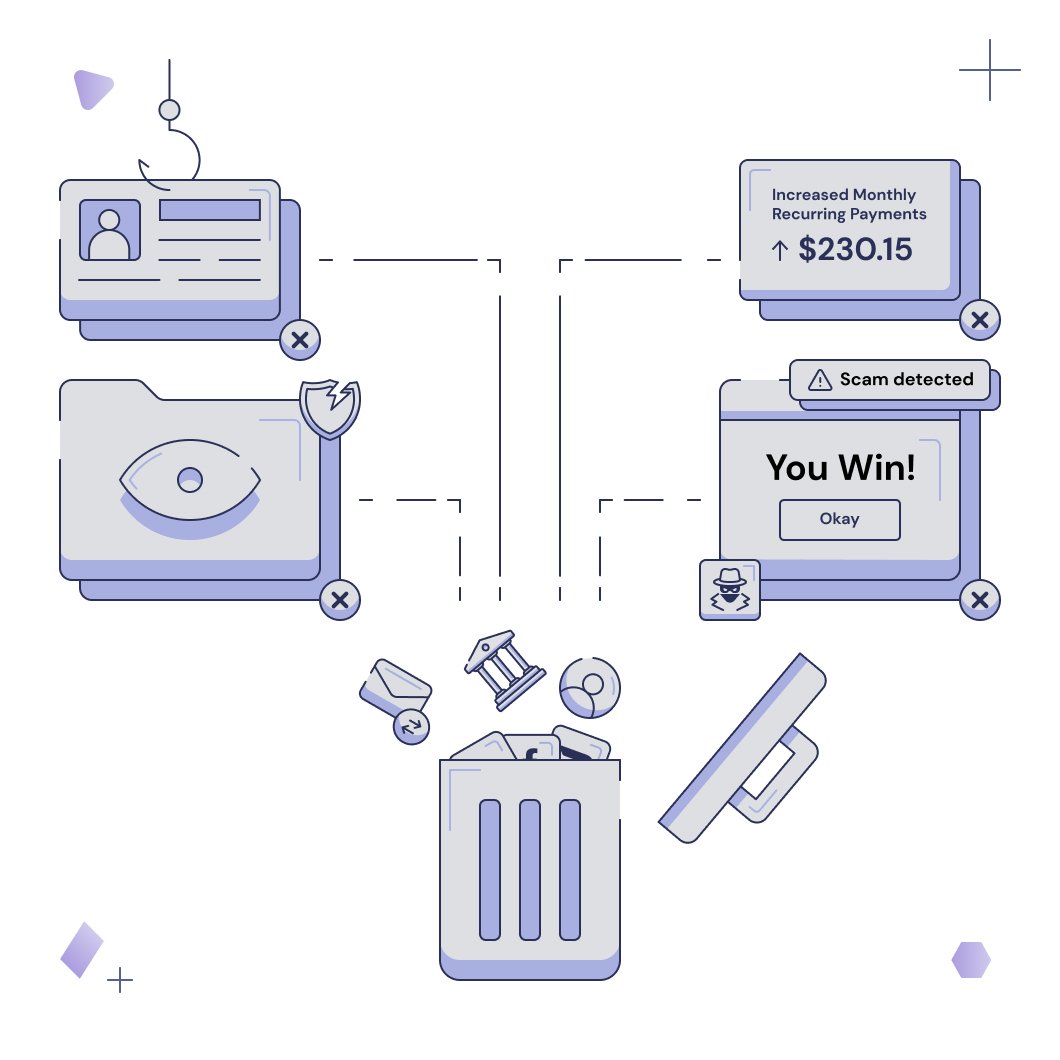Delete old accounts to protect your online identity
Remember that fitness tracker app you installed when you were on a health kick a while back? Or the online streaming service you signed up for to binge-watch that one TV series? Odds are, these accounts are collecting digital dust, but the real kicker is that these accounts can be a gold mine for scammers and hackers. So here’s the deal: when you delete your old accounts, you’re not just moving toward digital minimalism, you’re increasing your online safety.
Yawn, we know, but it’s essential. Here’s why it matters:
Old accounts make your private life public record
If you’ve ever maintained a LinkedIn profile, your work history, photo, and contact info have likely been scraped and repackaged. If you leave online reviews, it’s quite easy for someone to track places you go to and buy from. Scammers often target victims using personal details such as income levels, health conditions, religious or political beliefs, and even the names of relatives and acquaintances–and the more active accounts you have out there, the easier it’ll be to fall prey to scams.
Old accounts make it easy for your identity to be stolen
Cybercriminals need details like your name, DOB, and SSN to steal your identity. And if this data is mentioned on the platforms that were breached, they can collect it on the dark web and put the puzzle together. In addition, data brokers collect many, if not all, of the data points these criminals are after. The more old accounts containing your private information linger online, the clearer the picture criminals can piece together of you.
Old accounts are like sitting ducks for data breaches
Data breaches are getting way too common. When your data gets caught up in a breach, it's not just about your name and email address; it might include your shopping habits, your browsing history, address, phone number, and even credit card numbers, health records, and your private messages—all laid bare. At first, it might seem like just a minor inconvenience. But as time goes on, the chances of you losing control over your personal data, suffering reputational damage and your financial data being misused increase.
By the way, under the GDPR, if a company breaks data protection laws, causing you harm, you have the right to claim compensation from them. This could be both for material damage, like a financial loss, and non-material damage, like distress.
Of course the platforms you’re actively using can be breached, but because you don’t actively monitor those old accounts, it’s easier for them to fall prey to data breaches–think: outdated security measures and credential surfing attacks.
Old accounts can be expensive
Are you sure all the free trials you tested a while ago didn’t turn into paid subscriptions regularly draining your bank account? It might be easier to recreate an account if you actually need it again than deal with unwanted credit card charges, so we suggest getting rid of those old accounts as fast as you can and then taking stock of where you are.
Old accounts can be marketing traps
If you haven’t used services for a while, the chances are that you don’t really need them. But those companies do need your money and data. So, they will keep dropping annoying (but often effective) promos to tempt you to sign up for services you no longer want, and your dream of focusing on what really matters will become farther and farther away. On top of that, companies may share your data or collaborate on cross-promotional campaigns based on your interests If old accounts are still online, you may continue to be targeted for promotions or offers from affiliated companies, even if you no longer have an active relationship with the original service provider.
But here’s the good news: closing accounts doesn’t have to be a month-long affair. When you use a platform like Yorba, you can find, track, monitor, and manage all your accounts in one place. Then, when you’re ready, you can quickly unsubscribe from subscriptions you no longer want, get off those annoying mailing lists and–yes–delete those old accounts once and for all.
Ready to give it a shot? Join Yorba today.

